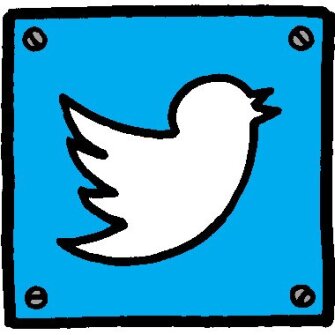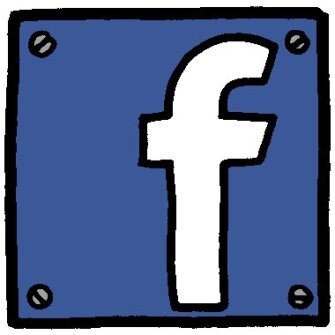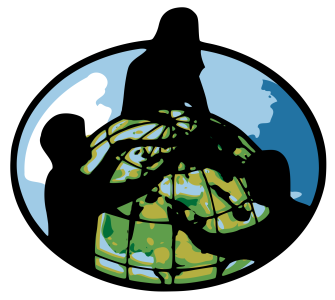One of the things a teacher’s summer break allows us is the ability to sit down and have some quality Netflix time.
Beyond re-bingeing on “Parks and Recreation,” (#treatyourself), I decided to see what everyone was raving about and watched Hannah Gadsby’s ‘Nanette.’ I love stand up comedy, so was excited to watch and get a good laugh.

I laughed, alright. I also cried, and actually clapped as I watched Gadsby’s piece is a force that honestly, painfully, and beautifully weaves humor, art history (!), comedy theory, gender, sexuality, and the power of storytelling together.
While watching, I immediately thought of my students--particularly my female and LGBTQ students-- interact with the world and with humor. How can I begin to break down the narratives that force them to hold their tension alone? How do I, as Gadsby marvelously explains, teach them how to tell their story properly?
Fortunately, I have some help. Two wonderful women came together and created the #NanetteSyllabus, with wonderful readings on ‘Nanette’ and the topics it covers. I had the opportunity to ask them some questions, and please make sure you check out the syllabus and ‘Nanette’ on Netflix.
What was your experience watching ‘Nanette’? What did it bring up for you? How did you react?
Jenn: I didn’t watch ‘Nanette’ the first time - I listened to it while I was driving (my phone case was closed and tucked inside the glove box, I promise) across the state so my introduction was focused on her voice and words. The moment she began dismantling the joke about lesbians laughing, I felt the tone shift and knew I was listening to something that I was going to come back to again and again. As a cisgender, straight women, my lived experiences have been different but I felt the anger in her voice with every feminist cell in my body.
Stephanie: I went into watching the special having heard rave reviews, so I figured it wasn’t your typical Netflix stand-up special. I had also heard great things from people I knew who saw her perform the show in New York, so I was excited to watch it. I also knew that as soon as I watched it, I’d need to have a smart opinion about it because it’s my area of research, so I actually put off watching it for a week. It turns out that studying stand-up sometimes makes watching stand-up feel like your job. Like - this really amazing special came out, but also now I should write something about it. I felt the same way with Cameron Esposito’s ‘Rape Jokes.’ First reaction: YES! This is amazing. Second reaction: I now need to incorporate this into the article I’m writing.
Where did the impetus for the #NanetteSyllabus come from?
Jenn: I wanted to talk to other people about it and most of the time the conversation was,
Me: Did you see Nanette?!
Them: Yes! Isn’t she great?!?
and we’d mutually praise her. Documents like the #CharlestonSyllabus and #PulseOrlandoSyllabus provide ways for people to keep talking about events or experiences after they pass from the news or particular entry points for conversation.
Stephanie: The reaction I always have to thought-provoking representations of gender in pop culture is: How can I use this as a teaching tool in my classes? That’s where my impetus to create a teaching document to accompany ‘Nanette’ came from.
Jenn mentioned several syllabi created in response to horrific violence that worked to contextualize those events within our country’s deep history of racism, homophobia, oppression, and violence against marginalized communities. I was also thinking of the syllabi that have been created in response to significant cultural events, like the #LemonadeSyllabus that make visible the ways in which popular culture and entertainment are also engaging with these histories.
I also have been trying to do round-ups of think-pieces related to issues in humor and comedy for a scholarly organization I’m a part of.
How do you imagine the syllabus being used?
Jenn: I hope people use the syllabus to learn more about the points she raises that speak to them, or make them uncomfortable, or make them want to learn more. We’re trying to be very conscious of disability status, gender identity, race, ethnicity, sexuality - to make a syllabus that supports deep and rich conversations that go beyond just one white woman’s Netflix special.
Stephanie: I’m hoping that other people will want to contribute their own expertise to the document. The more people contributing from their unique perspective, the richer the document will be. Thinking through what resources connect to the special is a useful exercise in itself. If you keep expanding and expanding out from the special, it brings up an almost overwhelming range of important topics. I think that’s the hardest part -- knowing when to stop.
I also hope it can be used as a resource for folks looking for additional information on these topics and looking to teach this special in their classes, to contextualize the special within both a broader history of women and queer comedic performers and comedy history more generally and to contextualize it within the history of violence against marginalized communities - both material and symbolic.
Gadsby’s work as a comedian has helped raise these issues, but as she powerfully points out, she also says it’s why she must leave because we must hold our own tension. Do you think comedy can still have a role in our process as a society to educate?
Stephanie: This is something comedy and humor scholars have always wrestled with and something I’m always wrestling with. There is a tension between what Maggie Hennefeld, a colleague of mine who studies feminist laughter and women in silent film comedy, refers to as the “disciplinary” and the “carnivalesque.”
The disciplinary angle builds on Henri Bergson‘s theorization of humor as a social corrective and the carnivalesque builds on Mikhail Bahktin‘s understanding of laughter as a utopic space that allows for the reimagining and upending of social hierarchies. Basically -- do we use humor to mock and police behavior and identities, or do we use humor to open up possibilities for change?
And it’s usually both. And it depends on who is speaking and who they are speaking to. And I think comics themselves are often wrestling with these opposing poles of what comedy is and its potential for change.
So, the most interesting thing to me about this special was that Gadsby was actually speaking to this tension. Her breakdown of sex and gender marginalization was really powerfully done - especially her breakdown of how self-deprecation and jokes work to further marginalize those already on the margins.
Comedy is often held up as a specialized zone in which marginalized performers can push back against harmful narratives, empower themselves and their communities, and change minds. Rebecca Krefting, a scholar who works on marginalization and stand-up, calls the kind of humor that unites and rallies marginalized communities and offers solutions for social change “charged humor.” Another famous humor scholar, Joanne Gilbert, argues that stand-up offers a place where marginalized comics can take back power, both socially and economically, but she also acquiesces that humor doesn’t offer a solid ground on which to mount social change because it “negates itself.”
And Gadsby is addressing these issues in her special in ways I haven’t seen before. Are jokes the best avenue for revolutionary change? Or do we have to address it more seriously? What is humor’s role in fighting for social justice?
Gender is such a powerful part of ‘Nanette.’ As cis-women, how does that inform your understanding of ‘Nanette’ and the creation of this syllabus?
Stephanie: I’m thrilled any time comedy by anyone who isn’t a cis-straight-white comedian gains this kind of recognition. I’m even more thrilled from a teaching standpoint any time a piece of pop culture does heavy pedagogical lifting.
From the standpoint of the syllabus -- we’d prefer to have non-cis, straight white folks contributing as well. I think we’re doing our best to be cognizant of what we add and our positionality, but I’d prefer to have others authoring as well. That being said - it’s unpaid labor! And I’m aware of the burden of being asked to do things for free and don’t expect that of anyone. The syllabus also has a North American bias-- so, I think it would be useful to have folks from outside the U.S. contribute additional perspectives on these issues.
How has being a woman affected your work in education overall?
Stephanie: I haven’t had it as bad as more marginalized folks in higher education. I think a major issue in teaching in higher education is the association of teaching with “women’s work” and the devaluation of teaching in relation to research. The idea [is] that you teach because you’re passionate about it, and so you don’t deserve credit or compensation. Also - there have been several studies showing that the reliance on teaching evaluations for hiring and promotion puts women, people of color, and queer folks at a disadvantage because marginalized people tend to get rated lower by students across the board than straight, cis, white men. Anecdotally, I know women I’m friends with have gotten comments on evaluations about pushing a “feminist agenda” and negative gendered comments about appearance and mannerisms. There’s also the problem of people explaining your own research to you. That happens especially studying comedy -- sometimes men will “test” my knowledge or try to explain the history of comedy to me.
Jenn: The first thing I thought of when I read that question was the parable about fish in fishbowl full of water: it’s nearly impossible to recognize the impact of the environment on you when you’re steeped in it all of the time.
When you’re a white woman in a profession that’s dominated by white women, it can be hard to see the water line at the top of the bowl, as it were. Which means, odds are good, you’ve done harm while merrily swimming about because being a woman in education means comfort. Which isn’t to say teaching is an easy job - it’s an incredibly hard one and there are hundreds of ways the system makes it harder - rather, it’s possible to move through a career not realizing the consequences of a system designed around white women’s comfort.
There’s a bunch of stuff in ‘Nanette’ that really stood out to me but her commentary on white men’s comfort with laughing at themselves reminds me of education and what happens when white men are challenged or attention is to drawn to them in a way that’s less than flattering. “Schoolmen” was the catch-all term for leaders in education in the later half of the 1800’s to the early 1900’s and while the term has faded out of use, there’s still a sense that all education needs to get fixed is for those in the classroom to listen to the white men telling them what to do. And it’s almost funny because it’s across the spectrum of education philosophies, disciplines, and mindsets. But to be sure, it’s #NotAllMen, but it’s enough that there’s a pattern.
Many men have built careers and reputations on confidently identifying what’s wrong in education and how it should be fixed. Drawing attention to that pattern is treated as if the speaker is being unkind, as if it’s personal. When those in the classroom make jokes about those modern-day schoolmen, the response is too often to snipe at the person making the joke, instead of looking at the pattern and looking for ways to disrupt it. It’s one of the reasons I hope men seek out ‘Nanette’ and listen to what she says.
Photo courtesy of Netflix.

Jenn Borgioli Binis is a holder of opinions on education, history, feminism, equity, and equality. When Twitter‘s 140 isn’t enough, she spills over into her blog. Although she is in treatment for lastworditis, prognosis isn’t good. Her quest, though, to force nuance into issues is progressing nicely.

Stephanie Brown recently received her doctorate in media and communication from the University of Illinois, Urbana-Champaign where she wrote her dissertation on gender, gatekeeping, and stand-up comedy. She also teaches courses in pop culture, media, and gender and women’s studies and dabbles in performing stand-up herself. Find her @stephbrown on Twitter and at stephbrown.net.


